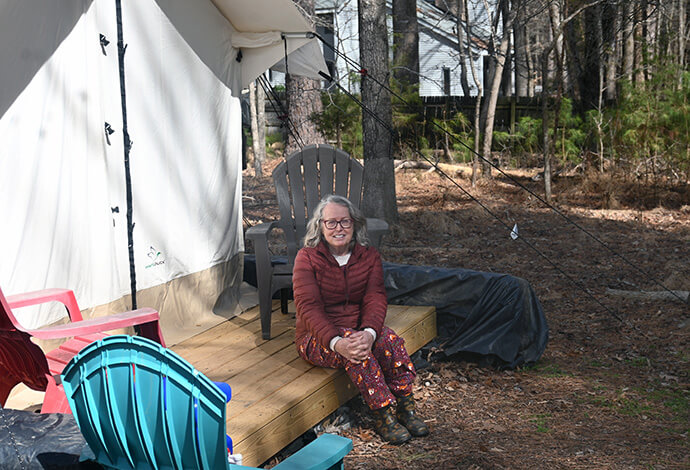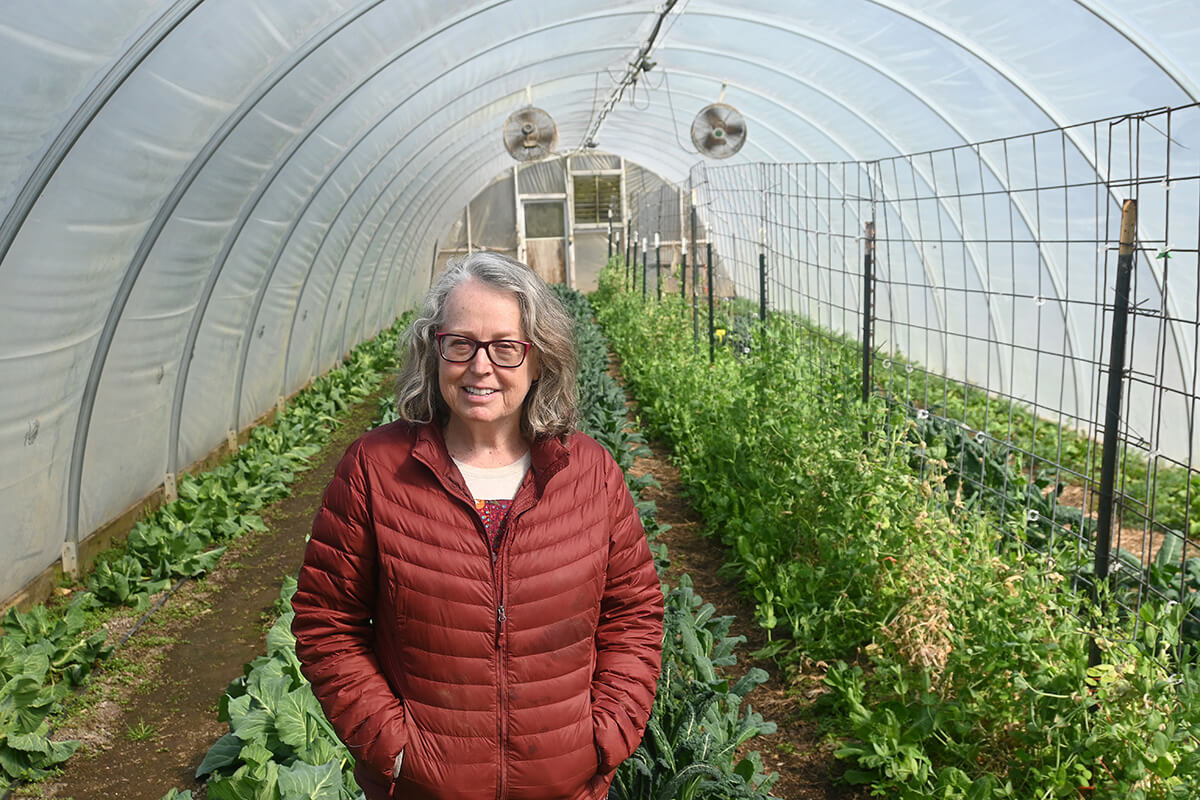Key Points:
- The Rev. Elaine A. Heath overcame a difficult childhood to make a successful career as a pastor, author and educator.
- Despite numerous obstacles, Heath worked her way through school, eventually becoming dean of United Methodist-related Duke Divinity School.
- Her latest incarnation is as the abbess of a new kind of Christian community that combines aspects of monasteries, farming and communes.
One day when she was a child, Elaine A. Heath said something her father did not want to hear.
“In the next moment, Dad body slammed me to the floor, straddled my belly, pinned my arms with his knees and began to strangle me,” she recalls in a memoir about her abusive childhood. “His eyes were wild, somewhere else, in some other time. He bared his teeth, grimaced like a mad dog. Unable to breathe, I struggled but could not break free. I was certain I would die.”
He finally let go and she survived, barely.
Scary and scarring moments like this dot “Loving the Hell Out of Ourselves,” written by Rev. Heath with her sister, Jeanine B. Heath-McGlinn, a therapist. Their childhood was a nightmare of abuse, neglect and indifference by their parents. It included rape and other physical abuse, deep loneliness and isolation, and destructive paternalism.
“I have a deep personal experience of recovery from multiple forms of trauma, including religious trauma,” Heath said in an interview at her home. “My journey into my vocation, my calling to do all the things that I do now and have been doing for years, has also been my recovery journey.”
Despite many obstacles — financial challenges, a bad marriage and low-paying jobs — Heath worked her way through the schooling needed to become a pastor, teacher and dean of United Methodist-related Duke Divinity School in Durham, North Carolina.

Today, she is an ordained elder living in an experiment to create a new kind of Christian community. Spring Forest is billed as “an intentional faith community,” combining aspects of monasteries, farming and communes.
“Dr. Elaine Heath has long been an adventurer in cultivating new forms of Christian community,” said the Rev. Michael Adam Beck, director of Fresh Expressions for The United Methodist Church. “Spring Forest expresses her vision for an integrated life of discipleship, hospitality and creation care. As a mentor to so many of us, myself included, Elaine has modeled what it means to live out the Gospel in deeply contextual and radically inclusive ways.”
The upbringing of Heath and her four siblings couldn’t have been more different from the lifestyle she is now advocating.
“We grew up in poverty in a violent home with a lot of neglect and all sorts of violence, and we were rootless. We moved a lot.”
Stops along the way included Montana (Helena, Kalispell, Bigfork, Anaconda), Oregon (Roseburg, Glide), Alaska (Anchorage), Washington state (Cheney) and Ohio (Toledo). Sometimes they lived with one or both of their parents, other times with friends or relatives. The children were separated from their parents and each other for long periods.
“Get rid of the bastards! Dad shouted,” Heath recalls in the book of an outburst during a family drive. “He wanted Mom to give all us young’uns to somebody else. He said he’d had enough of our … elbows and knees climbing into the bed at night. … If he had the guts he’d shoot all of us right now and escape the hell hole of his life.”
Subscribe to our
e-newsletter
Heath was 16 when her father forced her to leave and fend for herself. One of her stops was a family who lived on a farm, where she grew to like the lifestyle.
“They had three cows and 20 chickens and grew some vegetables,” Heath said. “I loved the farm. I loved the animals, and I loved being there. I loved the sunshine. I mean, everything sensory about it. I loved being there. I think that’s where I began to dream of having a farm someday.”
Her brushes with church life were inconsistent.
“I was brought up with stupid beliefs,” Heath said. “I was in conservative evangelical churches, and for a long time, I was taught to submit to the violence of my partner at the time and that you have to win your husband with your meekness and submission — that horrible sort of chain of command teaching.”
But she also began making new friends.
“I had such a need for friends, circles of people where I could come home to myself and wake up and heal,” she said. “It was in these sort of neighborhood groups and circles of women that God brought my way in my young adulthood that I began to heal, and then finally was able to put my foot down (to her then-husband) and say, ‘I’m going to college and I will pay for it.’”
She studied feminist theory, earning her undergraduate degree from Oakland University at the top of her class. From there she got her master of divinity degree from Ashland Theological Seminary and doctorate in systematic theology from Duquesne University.
She led two churches in Ohio in the 1990s.
“The churches that I pastored, usually new people would come, or people who’d left years ago because somebody in the church was mean to them, they’d come back,” Heath remembered. “I loved doing all the creative work with people, and I loved the people, and I loved all the educational things I did with them, like leadership development and … empowering them to use their gifts and create new ministries.”
Heath is a public speaker and has written about a dozen books, including one about the theology behind the “Twilight” movies and another on healing wounds from sexual abuse.
Her teaching career includes 11 years at Southern Methodist University’s Perkins School of Theology and then Duke, where she served as dean from 2016 to 2018. She left that position to found Spring Forest with some friends. She had previously experimented with the concept while living in Dallas.
Spring Forest includes The Farmastery, where Heath finally gets to live on a farm again.
“Spring Forest is a full flowering of all the things we’ve been living toward and that I’ve been researching and writing and teaching about,” she said.
Read related story
Patterson is a UM News reporter in Nashville, Tennessee. Contact him at 615-742-5470 or [email protected]. To read more United Methodist news, subscribe to the free UM News Digests.




